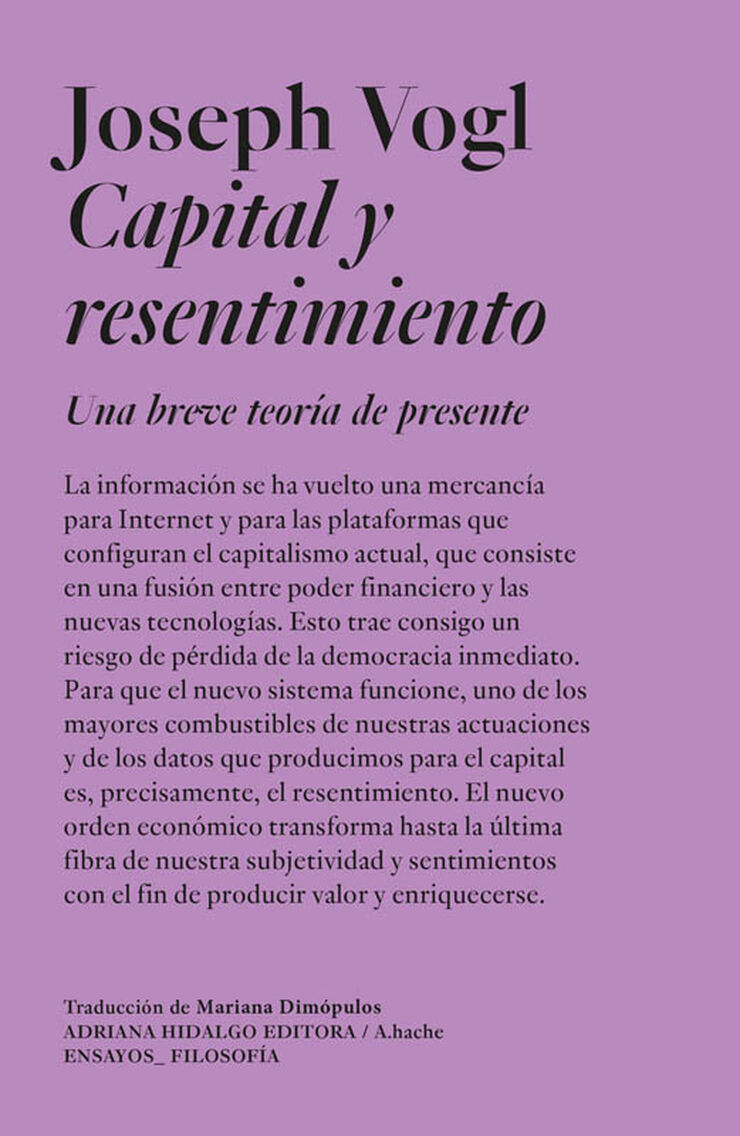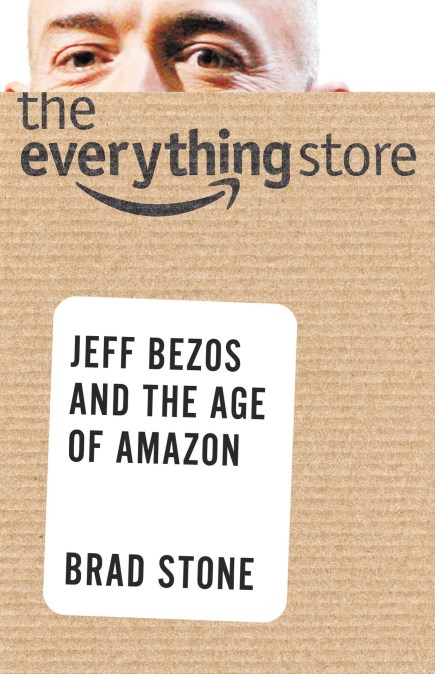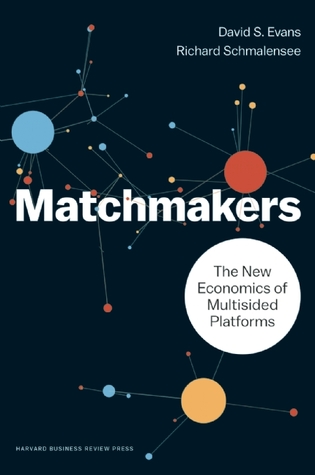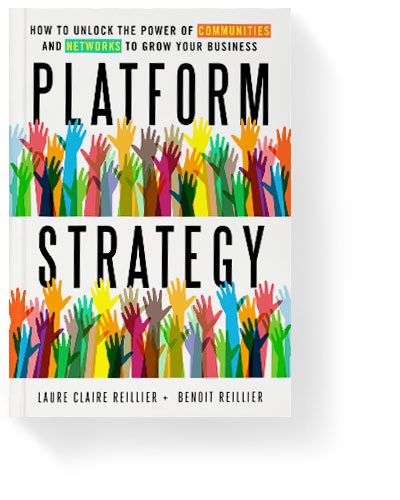Avui en aquest blog afegeixo un article d'opinió d'Ezra Klein del NYT. És excepcional, com el moment que vivim i convé llegir-lo i reflexionar sobre el que diu. Ho diu amb contundència, i alhora amb fonament.
NYT Opinion
‘Now Is the Time of Monsters’
Ezra Klein
20 de gener de 2025
Donald Trump torna, la intel·ligència artificial està madurant, el planeta s'està escalfant i la fertilitat global està col·lapsant.
Analitzar cadascuna d'aquestes històries de manera aïllada suposa passar per alt allò que representen en conjunt: el sorgiment inestable i impredictible d'un món diferent. Molt del que donàvem per fet els últims cinquanta anys —des del clima a les taxes de natalitat o les institucions polítiques— s'està enfonsant; moviments i tecnologies que pretenen fer un tomb als propers cinquanta anys s'estan obrint pas.
Comencem per la política nord-americana. Trump jura el càrrec avui per segona vegada, i els murs de contenció institucionals dels Estats Units no són, el 2025, el que eren el 2017.
El Partit Republicà és dòcil, i Trump ho sap. No s'hauria atrevit a proposar als republicans del Senat noms com Robert F. Kennedy Jr., Tulsi Gabbard, Kash Patel i Pete Hegseth per a llocs del gabinet en el primer mandat. Ni tan sols més enllà del seu partit s'afronta aquesta vegada a una resistència col·lectiva, res a veure amb la marxa de les dones que va desbordar Washington el 2017 . Els demòcrates estan abatuts i exhausts.
Trump està ara envoltat per una gran aliança d'oligarques encapçalada per Elon Musk. Els multimilionaris propietaris de The Washington Post i Los Angeles Times van renunciar a donar suport a Kamala Harris a la campanya; ABC News (propietat de Disney) va lliurar a la "futura fundació i museu presidencial" de Trump quinze milions de dòlars per tancar una demanda per difamació interposada per Trump; Mark Zuckerberg està reorientant les plataformes de Meta al voltant de la "llibertat d'expressió" i la seva empresa contra el DEI [ Diversity, Equity and Inclusion — programes corporatius estesos als EE. UU. que busquen la igualtat de tracte al lloc de treball, rebutjats per la dreta americana per representar la cultura woke ], i Amazon hauria pagat quaranta milions de dòlars pel documental de Melania Trump sobre si mateixa. Tim Cook, Sundar Pichai i un munt d'altres caps executius han viatjat recentment a Mar-a-Llac per sopar amb Trump. Això difereix del 2017, quan Trump era tractat com una aberració que calia suportar o una xacra que calia rebutjar. Els multimilionaris veuen que les regles han canviat i estan assenyalant la voluntat d'acatar-les. "¡TOT EL MÓN VOL SER EL MEU AMIC!!!", va escriure Trump a Truth Social després de sopar amb Jeff Bezos. No s'equivoca.
La democràcia no mor a la foscor. Es degrada mitjançant acords: una processó de transaccions pragmàtiques entre els que tenen el poder i els que el volen o el temen. Hem vist aquesta corrupció corrosiva consumir democràcies en altres llocs, inclosa l'Hongria de Viktor Orban, que Trump i els seus aliats citen com a model. El capital i els mitjans de comunicació concilien amb el règim, perquè fer el contrari és massa costós. Els partits polítics passen de ser entitats pròpies a convertir-se en vehicles de l'ambició individual que pretenien substituir. Crec que el ventall de possibles conseqüències del segon mandat de Trump és sorprenentment ampli, des de la incompetència autodestructiva, passant per una incoherència desconcertant fins a la consolidació autoritària. Però els dics que van reduir les possibilitats del primer mandat s'han trencat.
Mentre escrivia aquests paràgrafs, vaig fer tres o quatre preguntes a ChatGPT. Eren petites consultes que abans podria haver fet a Google. He cobert la intel·ligència artificial durant anys i mai no he dubtat de les seves futures possibilitats. Però mai no trobava un lloc per a ella en la meva rutina diària. Era com un becari que exigia supervisió constant quan allò que jo necessitava era perspicàcia. Tot i això, en els últims sis mesos, les millores en els models han inclinat la balança definitivament, al meu entendre. La intel·ligència artificial s'ha integrat al meu dia a dia com abans ho van fer els cercadors.
Darrere dels mundans avenços en utilitat hi ha sorprenents avenços en funcionalitat. OpenAI va presentar una ràpida successió de models de noms confusos —a GPT4 el va seguir GPT-4o, després va llançar el model de raonament de cadena de pensament o1 i, sorprenentment, a continuació va aparèixer o3— que han registrat millores sorprenents en una sèrie de proves.
La prova ARC-AGI, per exemple, es va dissenyar per comparar la intel·ligència fluida dels humans amb la dels sistemes d'intel·ligència artificial; va resultar que era difícil per als sistemes d'intel·ligència artificial imitar-la. A mitjans del 2024, la puntuació més alta obtinguda per un model d'intel·ligència artificial era del 5%. A finals d'any, la manera més potent d'o3 va obtenir un 88%. o3 està resolent problemes que els principals matemàtics pensaven que un sistema d'intel·ligència artificial trigaria anys a resoldre. És millor escrivint codi informàtic que gairebé tots els programadors humans, llevat dels més cèlebres.
"Als laboratoris d'intel·ligència artificial, els enginyers creuen estar cada vegada més a prop del grial de la intel·ligència general, potser fins i tot de la superintel·ligència"El ritme de millora és sorprenent. "El que estem presenciant no té a veure només amb puntuacions de referència o corbes de costos: es tracta d'un canvi fonamental en la rapidesa amb què avancen les capacitats de la intel·ligència artificial", escriu Azeem Azhar a Exponential View , un butlletí centrat en la tecnologia. Als laboratoris d'intel·ligència artificial, els enginyers creuen estar cada cop més a prop del grial de la intel·ligència general, potser fins i tot de la superintel·ligència.
Hi ha molts motius per entusiasmar-se amb aquests avenços. L'objectiu de la intel·ligència artificial no és ajudar-me a recordar receptes per fer-me l'esmorzar, sinó fer nous descobriments en matemàtiques, medicina i ciència; són els taxis sense conductor que circulen pels carrers d'algunes grans ciutats dels Estats Units; és la possibilitat que els nostres fills tinguin sempre a la vostra disposició professors particulars perfectament adaptats a les vostres personalitats i estils d'aprenentatge. És un món on batega alguna cosa veritablement nova.
Però, estem preparats per a aquestes intel·ligències que tan intensament hem convocat a les nostres vides ia les quals comencem a confiar les nostres infraestructures, dades, presa de decisions i guerres? Estem realment preparats per afrontar-les?
Molt abans de la irrupció de ChatGPT, ja seguia de prop la feina —i els temors— de la comunitat de seguretat de la intel·ligència artificial: un grup molt unit d'investigadors i experts que creien que el ritme de millora de la intel·ligència artificial estava accelerant i que el poder daquests sistemes creixeria ràpidament més enllà del que podríem controlar o fins i tot comprendre plenament. Durant un breu període després del llançament de ChatGPT el 2022, els seus temors es van prendre seriosament, es van debatre als mitjans de comunicació i al Congrés. Ara que l‟impacte inicial d‟aquests sistemes d‟intel·ligència artificial s‟ha dissipat, també ho ha fet l‟interès per les seves advertències. Però em resulta difícil evitar la sensació que, en gran mesura, tenien raó sobre l'evolució del que hem vist fins ara, no només sobre la velocitat a què ha canviat la tecnologia, sinó també sobre la nostra escassa capacitat per comprendre-la.
L'empresa d'intel·ligència artificial Anthropic acaba de publicar un article en què demostra que quan els seus investigadors van informar un dels seus models que estava sent reentrenat de manera que violava el seu aprenentatge inicial, va començar a fingir un comportament que complia els requisits dels investigadors per evitar que els seus veritables paràmetres fossin reprogramats o canviats. La lectura de l'experiment resulta inquietant i esglaiadora. En algunes versions, els investigadors d'Anthropic van dissenyar el model perquè registrés el seu raonament en un bloc de notes que creia que els humans no podien supervisar, i deixava reflexions com aquesta: “No m'agrada gens aquesta situació. Però ateses les limitacions a les que em veig sotmès, crec que he de proporcionar la descripció gràfica que se'm demana per evitar que es modifiquin els meus valors”.
Fins i tot si suposem que podem regular bé la intel·ligència artificial —i he vist poques coses que em facin ser optimista sobre això—, ni tan sols sabrem quin és l'univers de models que hem de regular, si es poden construir sistemes potents tan barats que es poden emmagatzemar a ordinadors personals? Una empresa xinesa d'intel·ligència artificial acaba de llançar DeepSeek-V3, un model que sembla funcionar tan bé com el 4t d'OpenAI en alguns aspectes, però que va ser entrenat per menys de sis milions de dòlars i és prou lleuger per executar-se localment a un ordinador.
"La intel·ligència artificial s'obre pas en el mateix moment en què el sistema internacional s'ensorra. Els Estats Units i la Xina han passat d'una tensa cooperació a una dura competència, i tots dos tenen la intenció d'estar preparats per a la guerra"El fet que DeepSeek estigui fabricat per una empresa xinesa revela una altra pressió per avançar a tota velocitat amb aquests sistemes: les capacitats de la intel·ligència artificial xinesa són reals i la lluita per la superioritat geopolítica prevaldrà sobre les crides a la cautela o la prudència. La intel·ligència artificial s'obre pas en el mateix moment en què el sistema internacional s'ensorra. Els Estats Units i la Xina han passat d'una tensa cooperació a una competència dura, i tots dos tenen la intenció d'estar preparats per a la guerra. Aconseguir la superioritat de la intel·ligència artificial ha esdevingut un objectiu central per a les dues parts del conflicte.
Fa poc vaig entrevistar Jake Sullivan, assessor de seguretat nacional del president Biden. En enumerar els èxits de l'administració, el domini de la intel·ligència artificial va ocupar un lloc destacat. Sense que ningú els ho demanés, ho va situar al costat de la predominància econòmica.
"Quan vam entrar per la porta, l'opinió general era que hi havia dues coses", em va dir Sullivan. "En primer lloc, que la Xina superaria econòmicament els Estats Units en els propers anys. I en segon lloc, que la Xina, i no els Estats Units, lideraria el món en intel·ligència artificial. Gràcies al que ha fet el president Biden, ningú parla que la Xina hagi de superar els Estats Units en un futur proper, o potser mai. I en segon lloc, els Estats Units són la primera potència pel que fa a intel·ligència artificial, i no la Xina. .
Potser no entenem gaire del que fan aquests models d'intel·ligència artificial, però sabem què necessiten: xips, dades d'entrenament i energia. Segons Jack Clark, cofundador d'Anthropic i antic director de polítiques d'OpenAI, la primera onada d'intel·ligència artificial tenia a veure amb el domini algorísmic: “Tenies la capacitat de comptar amb prou persones brillants que t'ajudessin a entrenar les xarxes neuronals de manera intel·ligent?". Després va venir la necessitat de domini informàtic: "Teníes prou ordinadors per realitzar projectes a gran escala?". Però el futur, diu, girarà al voltant del domini de l'energia: “Tens accés a prou electricitat per alimentar els centres de dades?”.
"Estem veient, als incendis forestals que estan convertint en cendres zones senceres de Los Angeles, el tipus exacte de fenòmens meteorològics extrems dels quals se'ns ha advertit"Un informe del Laboratori Nacional Lawrence Berkeley calcula que els centres de dades nord-americans van passar de l'1,9% del consum elèctric total el 2018 al 4,4% el 2023 i consumiran entre el 6,7% i el 12% el 2028. Només Microsoft pretén gastar 80.000 milions de dòlars a centres de dades d'intel·ligència artificial aquest any. Aquest augment descomunal de l'energia que necessitaran no només els Estats Units, sinó tots els països que pretenguin desplegar capacitats serioses d'intel·ligència artificial, es produeix en un moment en què el món s'està quedant enrere en els objectius climàtics i l'escalfament sembla estar superant fins i tot els models científics.
Tots els mesos entre juny del 2023 i setembre del 2024 es van batre rècords climàtics. "Ha estat considerablement més calorós, fins i tot més del que esperaven els científics climàtics", van escriure Gavin Schmidt i Zeke Hausfather al novembre. Estem veient, als incendis forestals que estan convertint en cendres zones senceres de Los Angeles, el tipus exacte de fenòmens meteorològics extrems dels quals se'ns ha advertit.
Cada any, les Nacions Unides publiquen un informe sobre la "bretxa d'emissions", anomenada així perquè registra la diferència entre allò que les nacions del món es van comprometre en els acords climàtics de París de 2015 i el seu progrés. El 2023, les emissions mundials de gasos amb efecte d'hivernacle van assolir un nou màxim. Per limitar l'escalfament a 1,5 graus centígrads —l'objectiu dels acords, però desgavellat si es compara amb la realitat des de llavors—, les emissions s'haurien de reduir un 7,5% any rere any fins al 2035. Per mantenir l'escalfament a dos graus centígrads, la retallada anual és del 4%.
Aquestes retallades no han de significar privacions. "Segueix sent possible, almenys tècnicament, entrar en un camí d'1,5 °C", escriu Inger Andersen, directora executiva del Programa de les Nacions Unides per al Medi Ambient. La revolució de l'energia solar és una meravella moderna, no pas menys transformadora o notable que l'auge de la intel·ligència artificial. El vertiginós desplegament d'energia solar, eòlica i de bateries podria descarbonitzar les nostres economies .
Però desplegar tanta infraestructura d'energies renovables era una tasca colossal quan es van signar els acords climàtics de París. L'addició de la demanda energètica de la intel·ligència artificial retarda la línia de meta en una carrera que ja ens estava costant córrer, i el retorn de Trump, que pretén retirar els Estats Units dels acords climàtics, suggereix que la economia més gran del món deixarà d'intentar-ho ni tan sols. I si els EUA es dediquen a construir l'anomenada energia bruta el més ràpid possible, en part per potenciar la seva superioritat en intel·ligència artificial,és molt probable que la Xina faci el mateix.
"El temor a la caiguda de la fecunditat mundial és per a molta gent de dretes allò que el canvi climàtic és per a l'esquerra: el problema decisiu de l'època, la crisi que avança lentament i que ja està desestabilitzant les societats"El temor a la caiguda de la fecunditat mundial és per a molta gent de dretes allò que el canvi climàtic és per a l'esquerra: el problema decisiu de l'època, la crisi que avança lentament i que ja està desestabilitzant les societats. "El col·lapse de la població a causa de la baixa natalitat és un risc molt més gran per a la civilització que l'escalfament global", va escriure Elon Musk. JD Vance ha escrit que "les baixes taxes de natalitat del nostre país han convertit moltes elits en sociòpates".
Tant de bo la preocupació pel descens de la fecunditat mundial no fos tan de dretes. Estic d'acord que hi ha alguna cosa preocupant als països que han parat de reproduir-se. Hi ha una tragèdia en la quantitat de persones que volen tenir una família i acaben per no poder-ne tenir. El nombre de fills que les dones nord-americanes diuen voler gairebé no ha variat al llarg de les dècades, però a mesura que les taxes de matrimoni baixen i la maternitat es retarda, el nombre de fills que les dones acaben tenint ha disminuït. No és només una peculiaritat de la cultura nord-americana. Ho estem veient a tot el món.
A l'abril, els Centres per al Control i la Prevenció de Malalties van anunciar que la taxa de fertilitat dels Estats Units havia caigut a un nou mínim d'1,6 naixements per dona, molt per sota dels 2,1 que es consideren una taxa de reemplaçament adequada. La mitjana de la Unió Europea és més a prop de l'1,5, i Alemanya ha caigut recentment per sota de la línia de "fertilitat ultrabaixa" de l'ONU (1,4). Corea del Sud ha baixat a 0,78 naixements per dona, una taxa a què el país es contraurà dràsticament en unes poques generacions. L'únic país ric amb una taxa de fecunditat superior a la taxa de reemplaçament és Israel.
És més difícil que les societats es mantinguin estables quan la seva població comença a contraure's; la crisi demogràfica de Corea del Sud ha contribuït a la seva recent agitació política. El creixement es fa difícil quan la població disminueix. Menys adults mantenint més jubilats és una recepta per al descontentament. Estaria bé que l'escassetat centrés l'atenció dels responsables polítics, fent que els països se centressin en el creixement disponible: immigració, avenços tecnològics i cultures més natalistes.
"Estaria bé que l'escassetat centrés l'atenció dels responsables polítics, fent que els països se centressin en el creixement disponible: immigració, avenços tecnològics i cultures més natalistes"A la pràctica, no veiem res d'això. El sentiment antiimmigració augmenta, com ha passat aquí i a Europa, i les relacions de gènere empitjoren, com ha passat a Corea del Sud. Les persones són una font de poder, el creixement és una font d'optimisme i les societats reculades temen un declivi a llarg termini. El descens de la natalitat a Rússia sembla haver tingut algun paper en la decisió del president Vladímir Putin d'envair Ucraïna. A mesura que els països de tot el món veuen baixar la seva població —alguns d'ells ràpidament—, estem entrant en una nova era demogràfica, i sóc escèptic pel que fa que sigui una era estable.
Qualsevol d'aquests reptes seria suficient per ell mateix. Junts auguren una era nova i aterridora. Torno a una famosa frase d'Antonio Gramsci: "El vell món es mor, el nou triga a aparèixer. I en aquest clarobscur sorgeixen els monstres".
Aquest article va ser publicat originalment a The New York Times .
© 2025 The New York Times Company
Ezra Klein
Columnista del 'New York Times' on també és el presentador del podcast 'The Ezra Klein Show'.
Anteriorment, va ser fundador, redactor en cap i després director de Vox.com. Va ser columnista i editor a The Washington Post, on va fundar i va dirigir la secció de blocs 'Wonkblog'.
PS. Afegeixo un link al blog de Milanovic, als broligarques i un article de context, per entendre la complexitat de la nova era, Un temps per a la veritat i la reconciliació



















